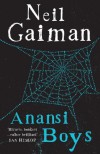William's Book Blog
Mostly book reviews. Very rarely I'll allow William Campbell Powell (author) to write a blog entry on publishing activity, but he's under orders to keep that stuff over on his Facebook page and on http://williamcampbellpowell.com
Currently reading
The listener will nae take it, top o' the mornin', begorrah

I need to be clear that I'm reviewing the audiobook here - in print or ebook this title would fare at least one star better.
L J Ganser, the narrator, has done this book no favours whatsoever. I can just about put up with his pronunciation of Murchison, which he chooses to rhyme with murk rather than church. I can cope with the odd word rhythms, the lurches that telegraph that he's unfamiliar with the text, and the awkward elisions between vocal characterisations as he realises he's started in the voice of the wrong character.
But his Scottish accent is appalling. There are some key characters who are supposed to be Scottish, but they end up sliding into (southern) Irish as often as not. The stress and the rhythms are all wrong, and mostly it's the word "hae", which he pronounces "hay" with emphasis, rather than unstressed. I'm not sure he knows what it means or if he even realises it's a verb. It doesn't get any better, either. It's a sore that never heals from one end of the book to the other. Maybe a US listener wouldn't notice, but to a British ear it sounds false, stilted and amateurish from beginning to end.
OK, rant over.
As I'm finding more and more, having reactivated my Audible subscription, an audiobook is a significantly different sensory experience to reading. It's an interpretation, for one thing, like a cover version of a treasured song, which can throw up some real surprises. My most common reaction is either "I will never listen to anything by this reader ever again" or (less often) "I will seek out other audiobooks read by this reader, simply for the pleasure of listening to a master at work" - or its variant "I would like this reader to narrate my novel" ;-). Peter Kenny falls into the latter category - sadly L J Ganser has joined John Lee in the former category.
The other aspect of an audiobook is the pace. I can (and usually do) read the printed word at least twice as fast as a good narrator would read the same book. The slower pace of an audiobook exposes the tiny details of language, but also gives the listener more time to concentrate on details of plot and characterisation. This may or may not be a good thing.
In this case it is not a good thing. L J Ganser has shone a very bright light on a book I used to love without reservation, and I have seen some ugly flaws.
First among these is the character of Sally. In print, I saw Sally as a welcome female presence in an otherwise male-dominated book. When I listen, she becomes a cipher, with only two purposes - to provide a sympathetic voice to insist on the Moties' peacefulness (balancing the unsympathetic Horvath's equally pro-Motie viewpoint) and to provide a "strong female character" and love interest for Rod Blaine. Perhaps the book is a child of its time, but Sally shows a future that has regressed to the 1950s in its attitude to women. She is there to create polarisation of opinion, to hamper the Moties-are-dangerous faction, building tension until the book's final revelations. In order to give Sally the clout to do this, the authors have made her an anthropologist, and it's frightening to hear how little scholarly detachment she has from her subject of study.
To a lesser extent, similar criticisms can be levelled at all of the characters in the book - Renner, Potter, Kutuzov, Staley - they exist to exercise specific functions, to provide nudges, threats, irreverence or whatever. They are created to fulfil specific plot purposes and their characterisations don't stray one iota beyond what is necessary to achieve that.
Which leaves the Moties.
They remain some of the best aliens ever crafted by science fiction. They manage to be both sympathetic and alien - their motivations are cleverly dictated by their biology - and they have their superiorities and weaknesses. They have good intentions towards the humans, but they know themselves too well and know how they'll act in a crunch. In some tragedies the characters hurtle towards their doom ignorant of the forces that drive them. The Moties are Macbeth plus Myers-Briggs.
High tragedy.








